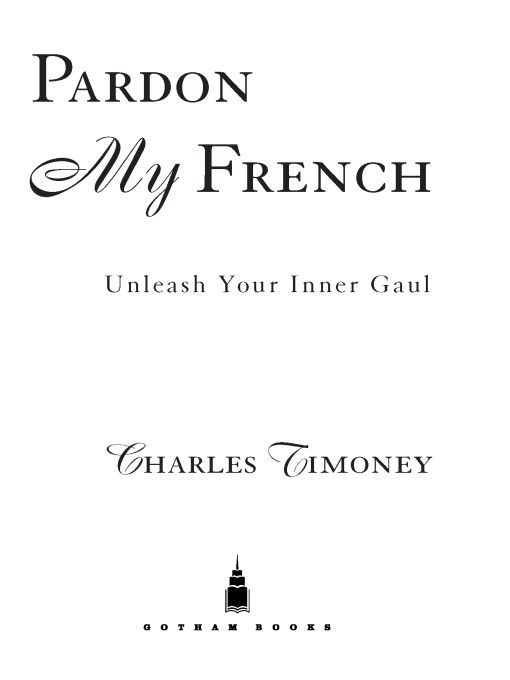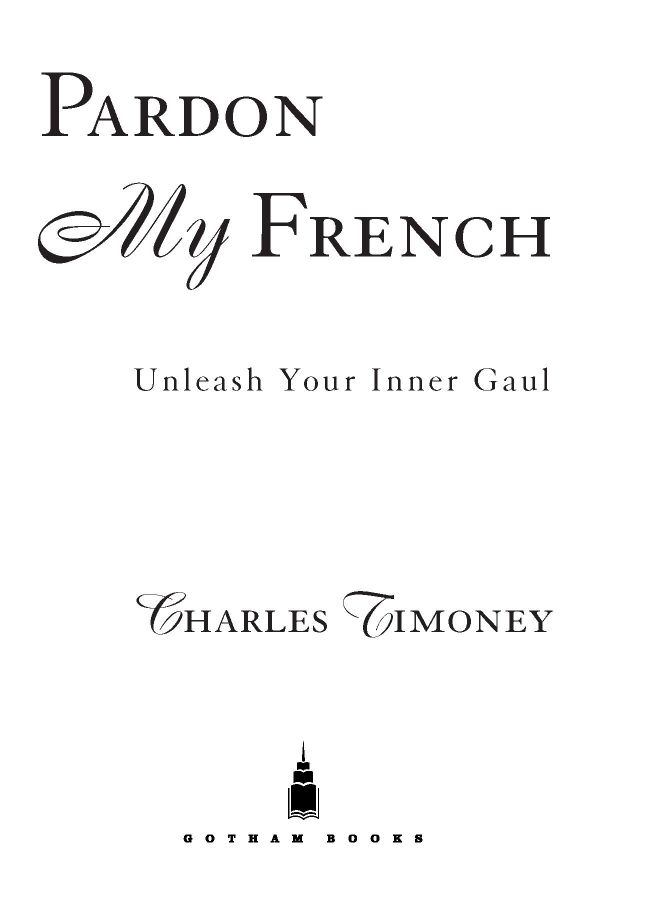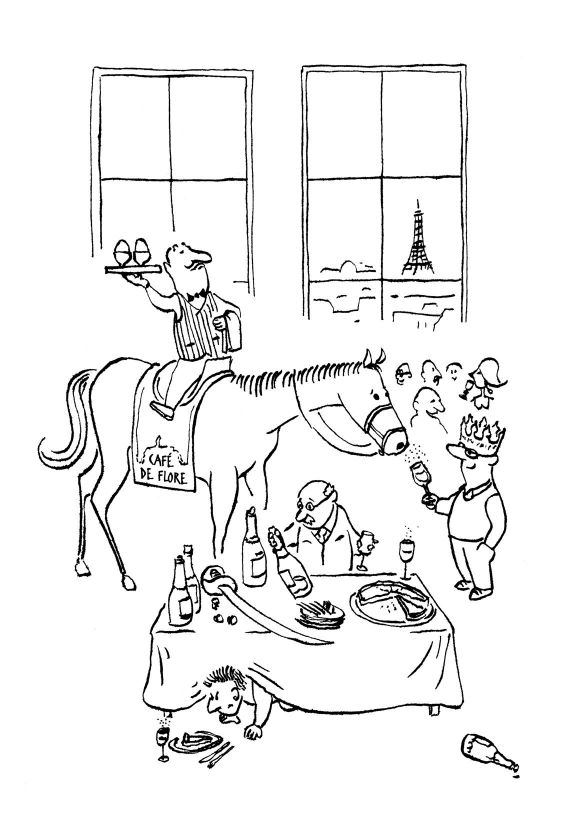Table of Contents
FOR INS, SARAH, AND SEBASTIAN
INTRODUCTION
It is only fair to point out, right from the beginning, that I am English. I think that this is something you should be aware of as early as possible in order to get the most out of this book.
For, while the book is an entertaining and informative view of France and French culture, it may also give you a good insight into the way English people see things. When you read it, you will quickly see that many of the definitions and descriptions have a particularly English slant to them.
I came to write this book because about twenty years ago my wife and I were both laid off in the same month. At the time, we were living in England where I was a patent attorney protecting the inventions of the company I worked for. Losing our jobs in the same month seemed to me to be disastrous. My wife, who is French, saw things differently and tried to get me to realize that this was a sign that we should leave England and go and live for a while in her native France.
So, in a moment of weakness, I agreed to apply for a job in Paris. The idea, at least for me, was to spend just a year or so there as an adventure in the hope that it would look good on my CV.
Having got the job (the fact that I was the only candidate may well have been a contributing factor), the main problem I was faced with over the first months was a staggering lack of useful French vocabulary. My new job was for the Paris division of a large U.S. company so the work that I did was all in English. However, I obviously needed to talk to my colleagues, and deal with day-to-day living, in French. I had studied the language for several years through school, but it became frighteningly clear from the very first morning at work that this was far from enough. My colleagues consistently used a wide variety of impenetrable slang and persisted in the annoying habit of talking about things I had never heard of.
Conversations tended to go too fast for me to be able to ask for explanations so I spent most of my early months in France in a painful haze of incomprehension. I am convinced that I would have had a chance of following at least some of what was going on if only I had known one or two key words. Surely, if you know that people are talking about secondhand cars, or income tax, or even gift wrap, you will have more chance of keeping up.
It seems likely that many visitors, whether English or American, who spend time in France must have the same sort of experience. So, in order to give you, whatever your level of French, a better chance of following what people are talking about, making sense of what you see in the streetor even of increasing your chances of leafing through a French newspaper and triumphantly thinking, Oh! Ive heard of that!I have made a selection of the various words that would certainly have made my life a lot easier had I known them when I first started work here all those years ago.
The words have been chosen to be as useful as possible and to give you a broad understanding of French life: they are not words that you probably learned at school, nor are the definitions the sort of thing you find in most dictionaries.
I have grouped them by themes such as Food, Travel, Entertainment, and the like. Even if you dont manage to remember them all, the definitions should provide a useful insight into what is really what in France.
FOOD AND DRINK
Where else could one start but with food and drink? One of the main reasons why so many people come on holiday to France is to take full advantage of both bars and restaurants.
But are you sure that you are ordering the right thing when you stop for a drink in a caf? Are you getting the best value from your boulanger? And what would you think if someone appeared to be asking you for a duck?
You will also discover a variety of French dishes, find reassuranceabout whether theyd ever include horse meat, and get some useful advice about tipping.
Drinks and Cafs
APRO:Apro is the familiar form of the word apritif and it is definitely an important word to learn early on. With luck, you will encounter un apro either at work or at home. At work, people seem to treat their colleagues to an aperitif before a meal to celebrate the birth of a baby, the buying of a new car, or to announce a change of job. I have fond memories of sitting down for lunch with colleagues whereupon one would rub his hands together with delight and cry, Allez! Cest moi qui vous offre lapro aujourdhui! before going on to announce some especially good news. We also had a system where if you lost a bet, you had to pay for the apros for everyone. You can of course have aperitifs away from the office, whether before a meal at home with friends or at a restaurant. Inviting someone for an apro or, more correctly, inviting them to venir prendre lapritif is a pleasant and simpler alternative to inviting them to supper. The key element of a decent apro is good sparkling wine, or preferably Champagne, in generous quantities. The ultimate apro, which can rival a meal, is something called an apritif dinatoire. If you get invited for such an apro you can expect the drinks to be accompanied by several different types of hot food and there should even be something sweet at the end. Depending on how much food is served, an apritif can last anywhere from an hour to all evening.
BIRE: On one of my first forays into a pub with friends at the tender age of sixteen, my friend Paul called for a half a pint of beer, please. This was met with hoots of derision from the bartender; in England, because of the different types available, you have to specify which sort of beerbitter, brown ale, mild, etc.you actually want. For once, things in France are simpler than in England, for you can go into a French bar and order une bire sil vous plat without running the risk of being humiliated. The barman or waiter will generally ask for details, suggesting une pression, which means draft beer, or quoting a few bottled beers that you might like to choose from. Experience suggests that the list of beers tends to start with the cheapest and work upward. You can speed things up by calling at the outset for un demi, which will lead to the barman bringing a glass of draft beer straight away. Un demi used to mean half a liter but now refers to twenty-five cc or a quarter of a liter. Occasionally, you still hear older men in bars calling for un bock when they dont want to drink a whole demi. Un bock is a wineglass of beer, roughly half the quantity of a demi. I dont know anyone who drinks bocks as there is barely enough for a single swallow.
CANARD: First of all, you should never offer French people granulated sugar with their coffee. If they are polite, they will be visibly shocked: if they are normal, they will react as though you were trying to poison them. Only sugar lumps should ever be offered with coffee in France. Having established this, the presence of sugar lumps in close proximity to coffee leads to one of the many excellent reasons for going to France: dunking sugar lumps in strong, black coffee is absolutely wonderful. The act of dunking a sugar lump, preferably a large, oblong one, in a cup of coffee is known as










